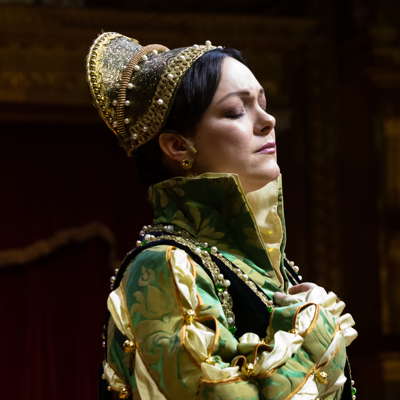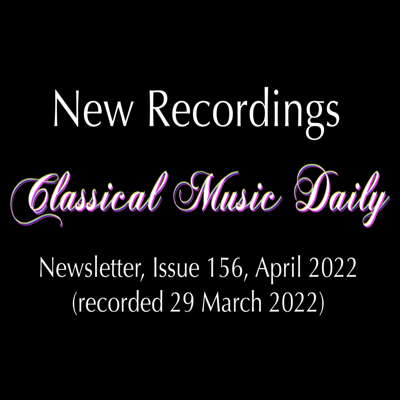 VIDEO PODCAST: New Recordings - Find out about Adrian Williams, Andriy Lehki, African Pianism, Heinrich Schütz and Walter Arlen, and meet Stephen Sutton of Divine Art Recordings, conductor Kenneth Woods, composer Graham Williams and others.
VIDEO PODCAST: New Recordings - Find out about Adrian Williams, Andriy Lehki, African Pianism, Heinrich Schütz and Walter Arlen, and meet Stephen Sutton of Divine Art Recordings, conductor Kenneth Woods, composer Graham Williams and others.
A Treat
RODERIC DUNNETT is dazzled by Rossini's 'La Cenerentola' at Neville Holt Opera
In the whole of the English Midlands, summer opera means glorious Nevill Holt. The most imaginative purpose-built (and award-winning) four-hundred-seater opera house is actually inside a National Treasure. In fact, if you live within sixty miles of this south Leicestershire gem, it's time to sign up.

Leicestershire's Nevill Holt Opera from the air. The opera house is in the foreground, inside the historic stable block
Nevill Holt definitely ticks all the boxes: gardens to worship and explore, cultivated and cared for by head gardener Andy Bretherick; stone architecture to die for; (the tiny village itself and its steep-sloping hill also sit on quarried limestone); edge-of-seat, well-chosen accessible repertoire; a mouth-watering choice of dining in style; and scintillating views.
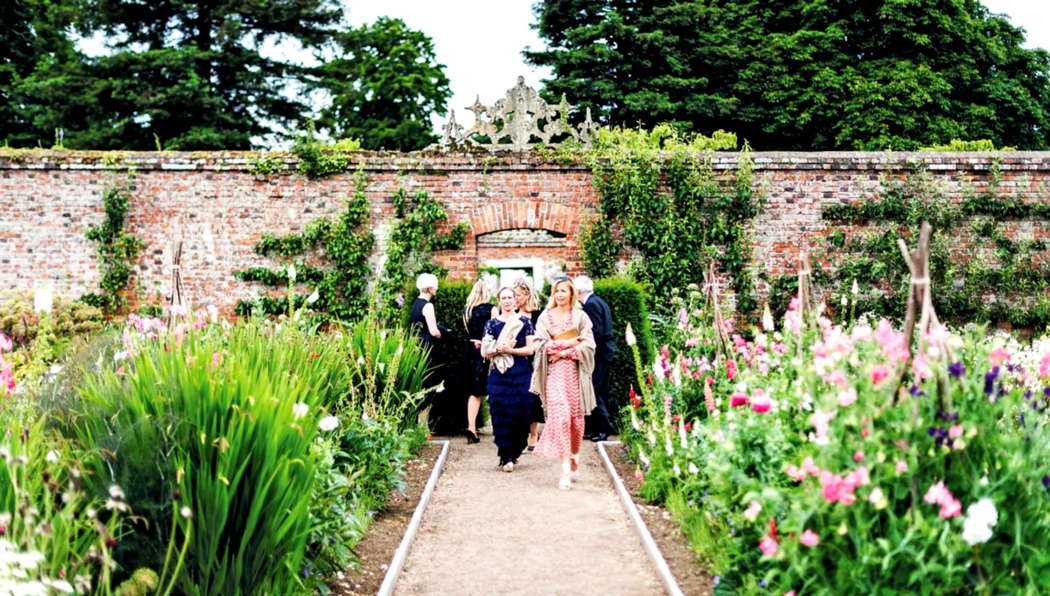
Nevill Holt - the gardens
It's a must for any operagoer's diary. They hail, or surely might, from Leicestershire - Nevill Holt's amazingly intimate home, Warwickshire, Bedford, Nottingham, Derby, South Yorkshire, and especially Northamptonshire and tiny Rutland, over which - and Nevill Holt has stunning panoramic views (only Longborough in Gloucestershire, with its sweep across the Vale of Evesham, compares) - those who attend events can marvel and delight in.
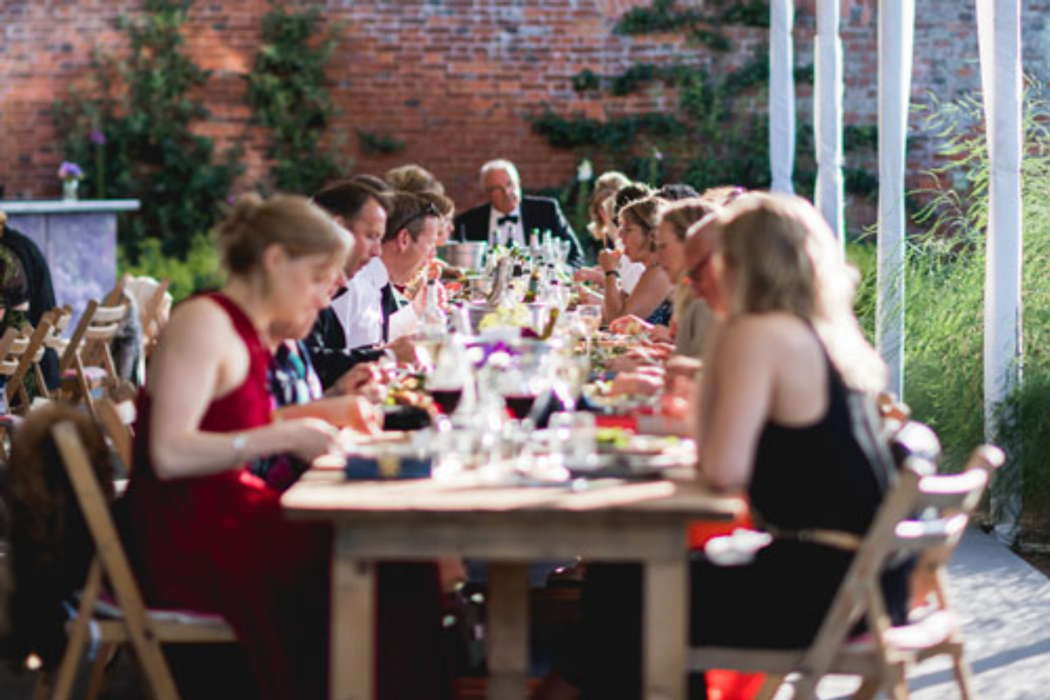
Dining in the kitchen garden area at Nevill Holt
It was launched and is still led by entrepreneur David Ross, whose Carphone Warehouse sponsorship was the making of the original Grange Park (now The Grange) opera, and who has since furnished shrewd, well-informed and finely-perceived chairmanship of both The National Portrait Gallery and, for a period, The Royal Opera, helping pull both bodies through the searing impact of Coronavirus; and whose David Ross Foundation has heaped opportunities on young people of every class and background.
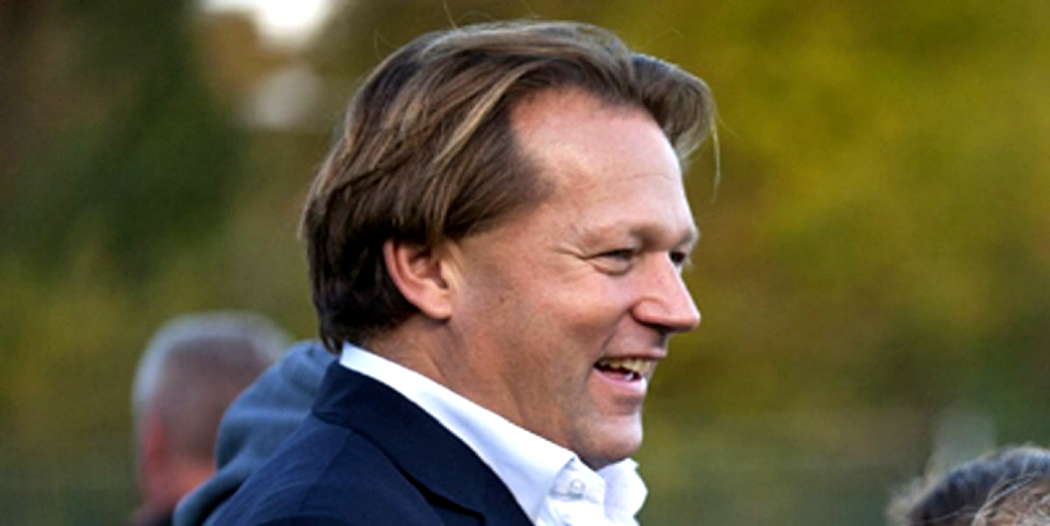
David Ross, founder of Nevill Holt Opera, the David Ross Education Trust and the David Ross Foundation
One such, Ross's nineteen-year-old son Carl, now honoured as the opera's Patron, is a practised musician, and particularly well placed to maintain Nevill Holt's unique vision and soaring standards.
Ten years on, and in its sixth year of the new Opera House, Nevill Holt is a name linked to real excellence, enticement and eloquence - a paradigm of achievement. Energy and flair are its hallmarks. Quality and perfection, down to the finest detail, are its banner.
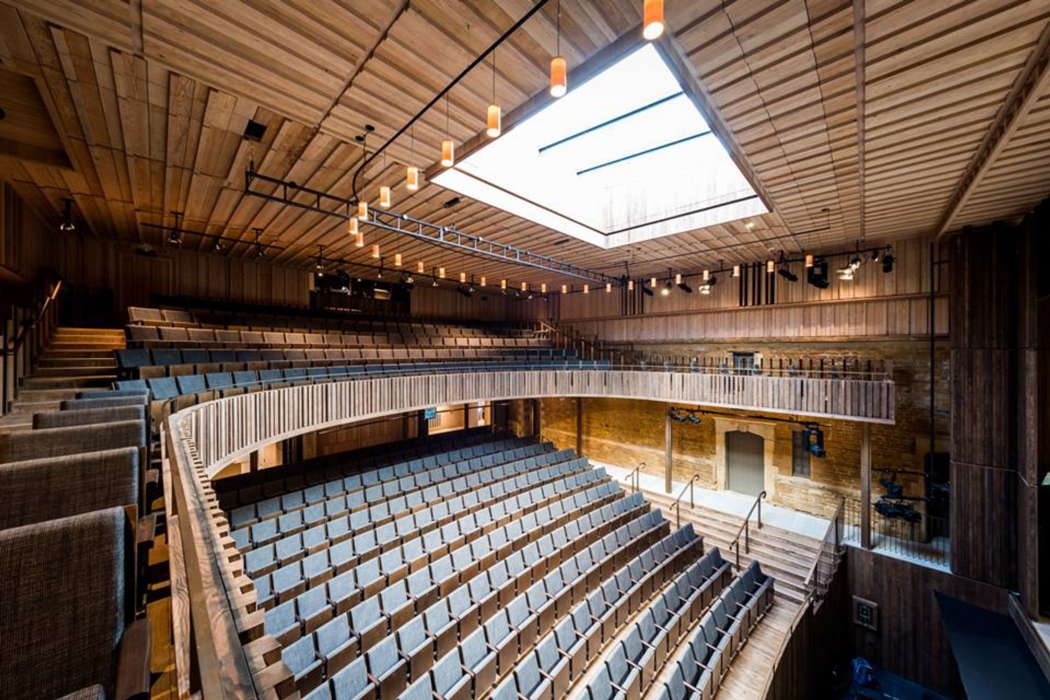
Nevill Holt's inspiring new theatre
Visitors are mesmerised by the place, charmed by the setting, bowled over by the music and dazzled by gripping productions. Like its latest, Gioacchino Rossini's La Cenerentola (Cinderella) - another palpable hit.
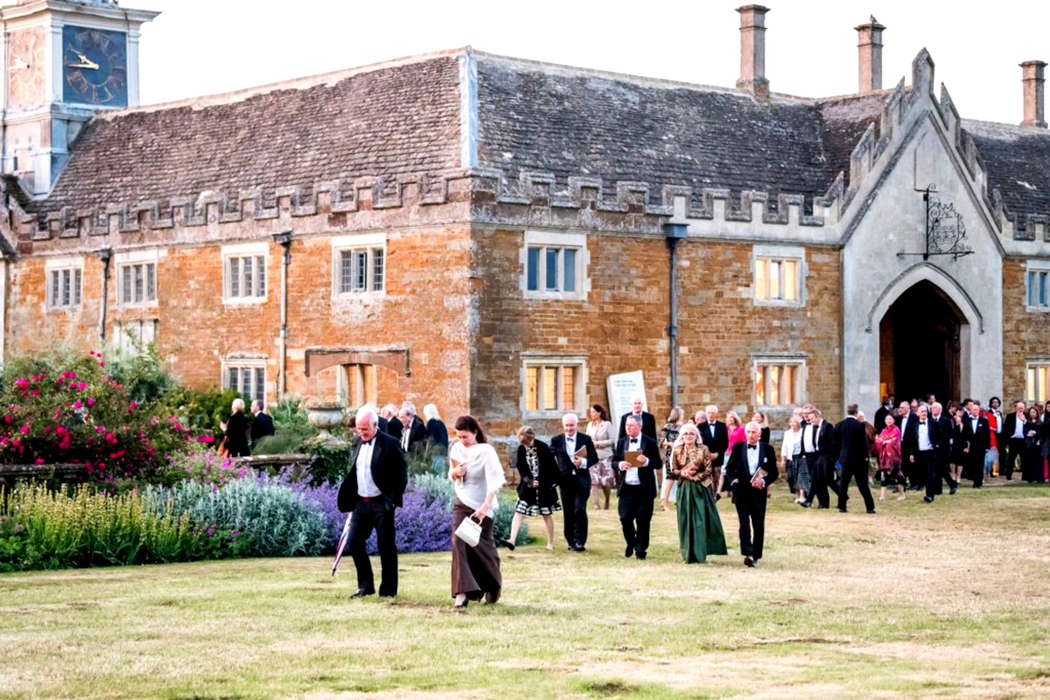
Nevill Holt - a satisfied audience emerges
So - to the show. And what a grand show it was. Come to think of it, I've never seen anything but exciting opera at Nevill Holt, now celebrating its tenth year since Ross created his own fresh, triumphant set-up.
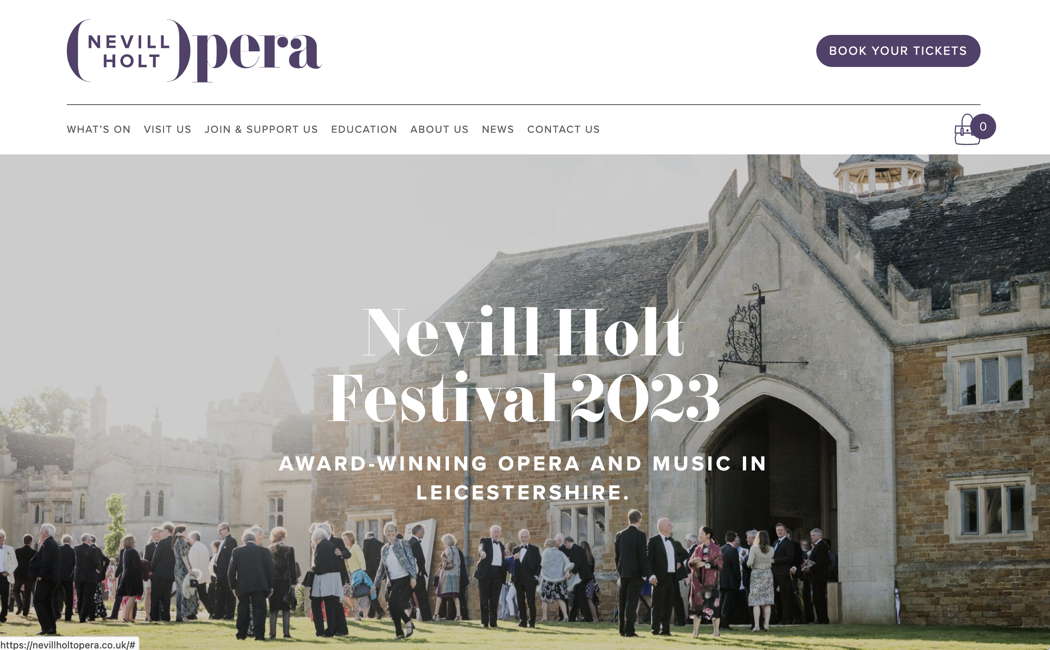
A screenshot from the Nevill Holt Opera website
This staging - Simon Wells' deliciously apt set, the costumes, the galvanising, spot-on orchestra and all the singers - was a sizzler from start to finish. Nevill Holt invariably puts a slice of fun into its visual - and musical - diet. Thanks to the prodigious knack and panache of its Director, Owen Horsley, this one was jam-packed with laughs, and that's why the audience was clearly so entranced.
Indeed that's what all Rossini comedies with their ingenious librettos must be: stock-full of mirth and merriment, chortles and chuckles - titters galore, as Frankie Howerd would have said. Cenerentola, sung here in remarkably crisp Italian - voice coach: Alessandra Fasolo - cries out for a rip-roaring, almost in-yer-face staging, a bedazzling, ticklish, edge of seat, champagne-popping zip. Right through. Rossini penned this one (at incredible, unbelievable speed) as a knock-you-for-six parody of the famous fairy tale. Oddly it doesn't have a fairy: instead, a brilliant Merlin-like bloke, who as a worker of miracles may or may not be fairy-like, and of whom more later.
It's all nonsense anyway: and the way two miraculous singers: first, the Prince (British relative newcomer Aaron Godfrey-Mayes - no wonder he collected the Royal Academy of Music Pavarotti prize) and Cinders (widely-travelled Grace Durham - think Zurich, Innsbruck festival, Dresden's staggering Semperoper: Cherubino, can you believe it) fall for one another in five seconds, ruling out everyone else, looked here (perhaps to advantage) as ludicrous as ever. But then everything hit the jackpot here, as it always does with Nevill Holt. The audience uproar at the curtain calls spoke reams.
One way Horsley - engaging in unbelievably his not-quite first opera production or coproduction (Garsington, New York: may there be many more) - kept the entertainment buzzing non-stop, was his endless invention with the (all-male) chorus. The most important thing about this gobsmackingly talented six-man choir was its singing: certainly as good as any opera chorus I can remember lately. Rossini uses the voices fabulously, so that all six - from tenor to lowest bass - were audibly offset and finely balanced, some emerging, others sidling alongside - something young Greek newcomer conductor Dionysis Grammenos prised out with notable expertise. Whether cavorting with the principals or setting sail on their own, this appetising all-male ensemble was balanced, dexterous, and all the more remarkable for the fact that individual voices actually stood out within the textures.
There's always a reservation, and one I openly mentioned in the (flourishing) bar afterwards: the capering of the chorus - immensely clever, and on and off, impudent or obsequious, very funny indeed - for all its ingenious contrasts (brilliantly carried off, incidentally) began to intrude: it became, for all its copious creativity, repetitive; and its permanent matching to the beat gradually began to reveal a naivety. There was a rumpty-tum about them which belied, if at times, the marked originality of the idea, and in addition its highly skilful execution by the sextet. Offsetting with the beat might have helped a lot, and made their frolics even more innovative and vital - the Ministry of Silly Walks, but only almost.
And yet if as musicians they were good news, and often phenomenally powerful for a mere sextet (and what magnificent, super-rich voices), they were equally adept and adroit as stage performers. It was the detail that counted. In scene after scene, or not least in matching the orchestral interludes, they were a model of finesse, coaxed by Horsley and doubtless by movement director Daniel Hay-Gordon, whose ballet and dance experience surely showed at every move. Whatever you made of their (hyperactive) antics, they brimmed with invention and sizzled with imaginative ideas. They were witty, clever, despite any doubts to a large degree varied, and provided a vast deal of fun.
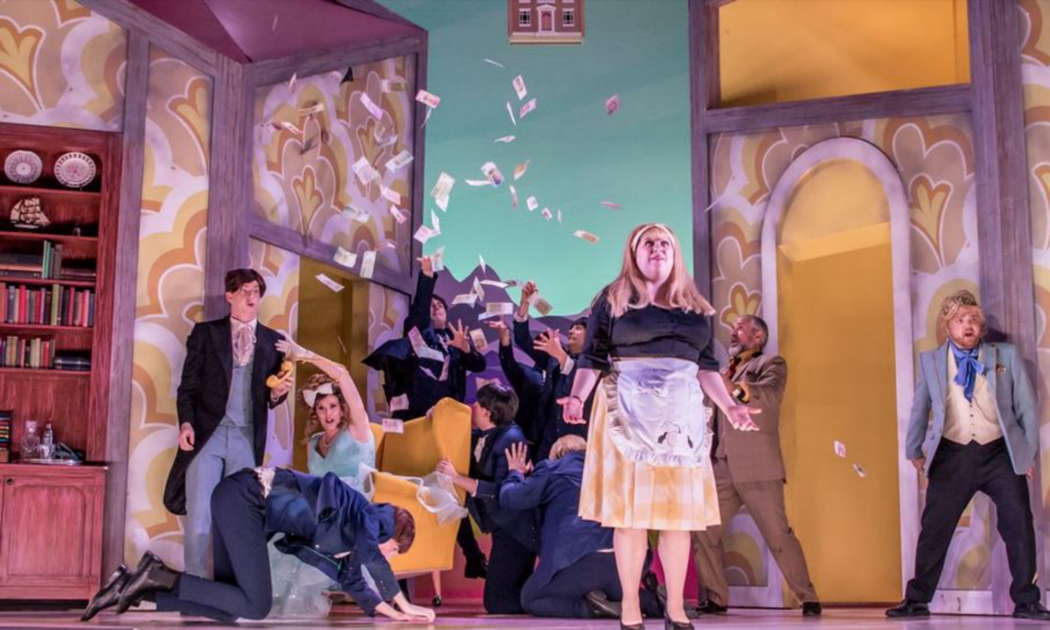
Rossini's La Cenerentola at Nevill Holt Opera - Angelina-Cinderella (Grace Durham) with a typical shambles behind her - left, Malachy Frame as the disguised Dandini, and right, Aaron Godfrey-Mayes (the real Prince, Don Ramiro). Photo © 2023 Genevieve Girling
But of course it's the principals who matter most, on whom the whole box of tricks depends, and as usual Nevill Holt deployed a joyous, vivacious cast well up to matching the high jinks of the music itself. They're a rum lot, these (actually not so) ugly siblings, ambitious dad and bride-seeking magnate (Don Ramiro): Paris's Opéra-Comique was the usual haunt of this popular folk mélange: Cinderellas emanated from a certain Jean-Louis Laruette (1759), the Maltese Nicolo Isouard (1810), Massenet of course (Cendrillon, 1899), plus Wolf-Ferrari (Venice, 1909); and indeed the widely-snapped-up spoof of Sir Peter Maxwell Davies (Cinderella, 1980, for children). Each had its own take on this zany morality tale: above all, Rossini's dandling his rapidly hatched Dramma giocoso ('Goodness Triumphant') before a rapt Rome audience in 1817.
The prime source for the early ones, and even here, was the Louis XIV-era highly successful folktale specialist Charles Perrault - Mother Goose, Puss in Boots, Sleeping Beauty, Red Riding Hood - appending to each a moral content (as here). The obvious point of Cenerentola is that the generous, big-hearted Cinders easily beats her grotesquely hyperactive, not necessarily ugly but presumptuous, bullying and rapacious sisters to the prize. Goodness does indeed triumph.
Notable especially for her coloratura, by no means easy, Grace Durham, full of character, certainly dazzled, and if her timbre marginally lacked individuality, she delivered both power and some attractiveness, indeed efflorescence inspiring sympathy. As has been said, the heroine, though endlessly derided and put upon, kicked back into the kitchen in both Acts, gains forcefully in character in the latter stages of Act II. Some have argued dislikeable, but there was none of that in Durham's appearances. She exuded innocence, honesty, and all those qualities which the Prince intuitively and unexpectedly spots in her.
The smug, obnoxious sisters - a frisky Clorinda (Spaniard Lorena Paz Nieto, with just about every frontline opera role already), and bossy Tisbe (Guildhall-trained Nancy Holt, an admirable connoisseur of somewhat rarer opera - Nino Rota, Vaughan Williams, the brilliant Jake Heggie - conjured up a skilful display of fetid awfulness).
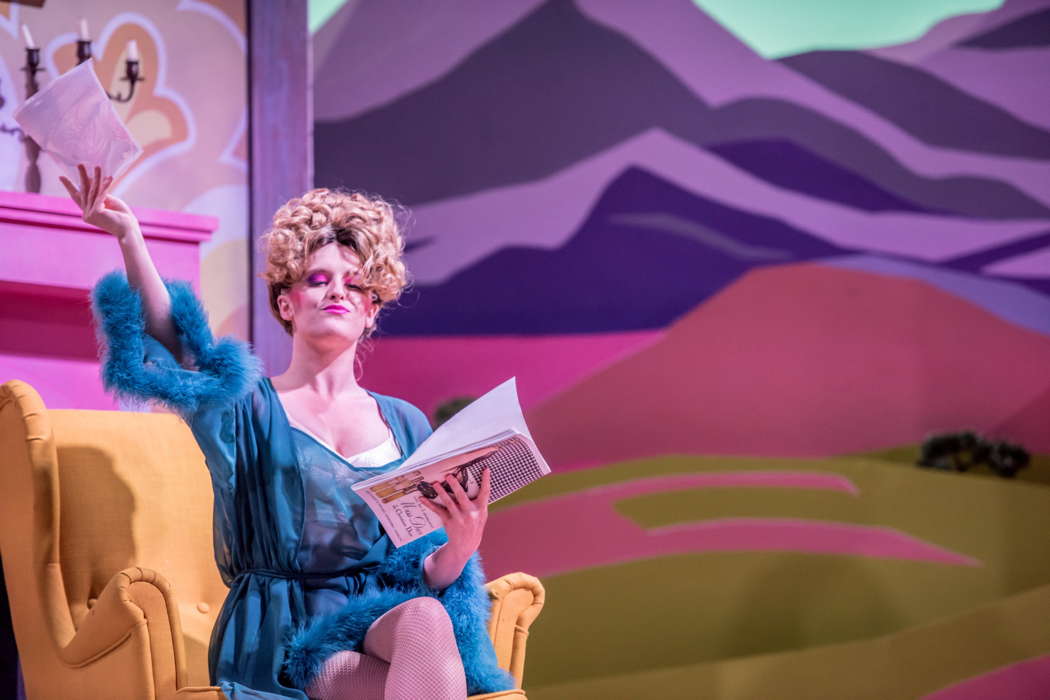
Nancy Holt as Cinders' obnoxious sister Thisbe. Photo © 2023 Genevieve Girling
As a pair, whether imitating the other or contrasted, they were a visual delight - or murky duo. But their vocal duetting, in parallel or counterpointed - think of the gypsies in Carmen - was certainly one of the evening's musical treats.
Grant Doyle - Nevill Holt has a knack of drawing in both new blood and clever, seasoned old stagers - made an increasingly funny, pompous, jumped-up Don Magnifico, the aristocrat fallen on hard times (hence his urge for one - either - of his nauseous elder daughters to net the well-heeled Prince); especially as drink began to gain a hold. Royal College of Music and Royal Opera House trained Doyle's international career spanning China, Germany, Zurich, Anjou, Rome, Madrid (and, unusually) The Canaries, has already added Nevill Holt's Barber of Seville - last year, 2022: more uproarious Rossini - to his appropriately ample history. Actually a performer as experienced and versatile - indeed famous - as him needs no CV.
He has marvellous strength, vocal support and command, and an impressive way of differentiating the feel of his voice between Don Magnifico's (the name a send-up, of course) various states of mood and character. His Leporello-like patter - there is a fair smattering of Mozart in this hectically written extravaganza - was not just brilliant but immaculate, sparkling, masterly. Poised above the rest like a kind of resurrected Commendatore, he consistently ruled the roost, even virtually pirouetting with the chorus - this mix was always superb. And Doyle especially shone in gradually increasing the bewildered, craven, fawning personality of the increasingly hapless paterfamilias.
Malachy Frame (Dandini, the Prince's valet posing as his master) is a baritone who has likewise made tracks in contemporary repertoire, with Will Todd's celebrated Alice, and contrastingly in Purcell's King Arthur with Paul McCreesh's Gabrieli Consort - coastal north Germany: good to hear of Purcell in Hamburg. A highly proficient performer, he arguably needed more nurture and attention, for at times he seemed left to his own devices by contrast with the über-directed chorus. Dandini needs to make the comedy rock. He scarcely contrived that.
Cenerentola's orchestra results from an inspired pairing of Nevill Holt's adventurous stagings with the dynamic Royal Northern Sinfonia (Gateshead/ Newcastle). Richard Hickox, Simon Halsey and John Wilson all served as artistic directors; and also, daringly, some marvellous string virtuosi: Heinrich Schiff (cello), Thomas Zehetmair (violin) and others.
The scintillating fizz was maintained throughout this show (including several musical interstices by which Rossini chooses to separate some scenes). There are also some bracing, bold, almost gripping key changes ('sinking tonality'). Oddly the Overture sounded a bit tinny (only that, so briefly). But the overall orchestral sections attentiveness and wide-ranging pacings owed much to Grammenos. There were moments in the violins, and indeed the lower strings, that positively beamed. Not to mention the horns - Peter Francomb and Jonathan Quaintrell-Adams.
He did much to ensure the frequent non-stop scampering, except of course for Angelina's/Cinderella's touching folk song (Canzona), coincidentally so relevant to the plot: 'Una volta c'era un re Che a star solo s'annoiò' - 'Once there was a king so bored with his solitary life that he sought out three possible spouses ... but in the end he chose innocence and virtue' - which called forth, as it must, a soothing delicacy and innocence from the band as well as the singer.
Durham's rich natural mezzo, whether poorly clad or resplendently robed in gold, was able to shine through here, whereas in high (really soprano) tessitura despite remarkable dexterity she seemed a fraction stretched; even strident, though that's in the nature of the pretty demanding score. It's remarkable how mezzos (and countertenors; perhaps not the old contraltos) can hit such far-reaching heights; and Durham actually delivered the almost Baroque standard, high-weaving coloratura with striking aplomb: an admirable feat. Yet it's equally not surprising how moving her closing forgiveness aria proved.
Simon Wells' set was a bit of a triumph, and nicely trundled about by the chorus members. When Kevin Treacy went to town with vibrant colour lighting - reds, cerises, turquoises and a clutch of others, the two-part main set gained vitally in impact. We got a not-quite kitchen and a far-from palace, but it didn't matter too much. The very special bit of imagination - indeed it displayed a great deal of artistic acumen - was the scattering of diminutive houses and buildings, blinking with homely light in the (as it were) sky, suggesting a sort of marzipan fairy tale village going about its normal business. The idea is not a first, but it was certainly a treat.
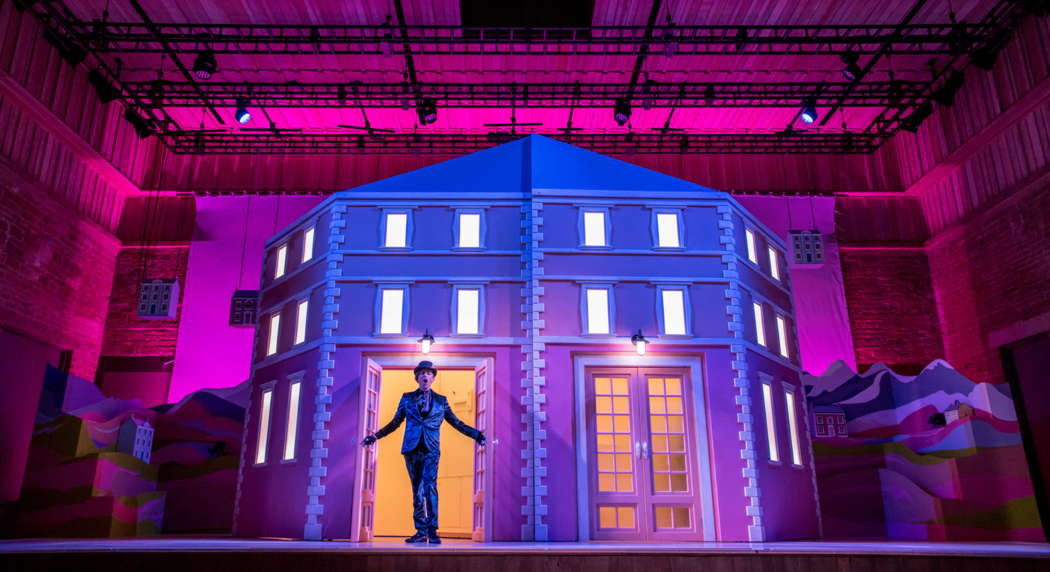
Simon Wells' (here knit-together), movable frontage, thrown into wondrous, magical relief by Kevin Treacy's creative lighting. Photo © 2023 Genevieve Girling
Which two voices seemed to me unremittingly superb? First, of course, The Prince. Aaron Godfrey-Mayes from his first (disguised) entry seemed to hit the target at every point. Not just a pleasing - a stupendous (almost Helden-)tenor voice to add to England's young tenor pantheon. His moves were well-mapped; his wig bizarre. And time and again, it was his beautiful voice which shone through, not only duets ('Un soave non so che' - compare also Dandini's splendid exchange with Ramiro) but in the riches of the quintets ('Signor, una parola'), quartets and the overwhelming latter stages utterly dotty, staccato-stepped, fughetta sextet ('Siete voi? ... qual sorpesa - tacete', etc), virtually a twelve-minute masterpiece, with which Rossini peppers his score. Indeed he uses these moments of 'surprise', when everything stops, just as Verdi would after him. A hoot.
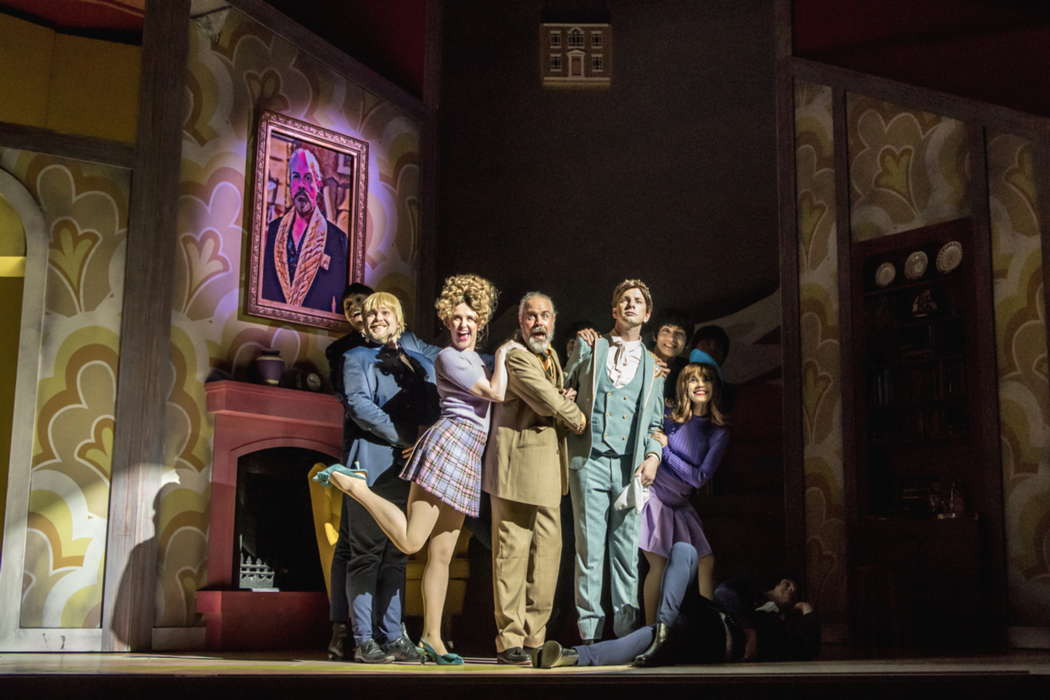
A typically wacky, oddball quintet - Ramiro, Tisbe, Magnifico, Dandini and Clorinda, plus additions. Photo © 2023 Genevieve Girling
But equal first, arguably top, came the agile and inventive lyric bass, Canadian Trevor Eliot Bowes, as the godfather of it all, Alidoro. Utterly benign, the matchmaker, the engineer of the unexpected, from his initial limping entry (cue: sisters - horrible; Cinders - kind and generous) Alidoro is crucial to the evolving of the plot. There are long periods when he's not onstage, though he's manipulating behind the scenes, but my, quite apart from his teasing bowler-hatted acting, what a colossal voice.
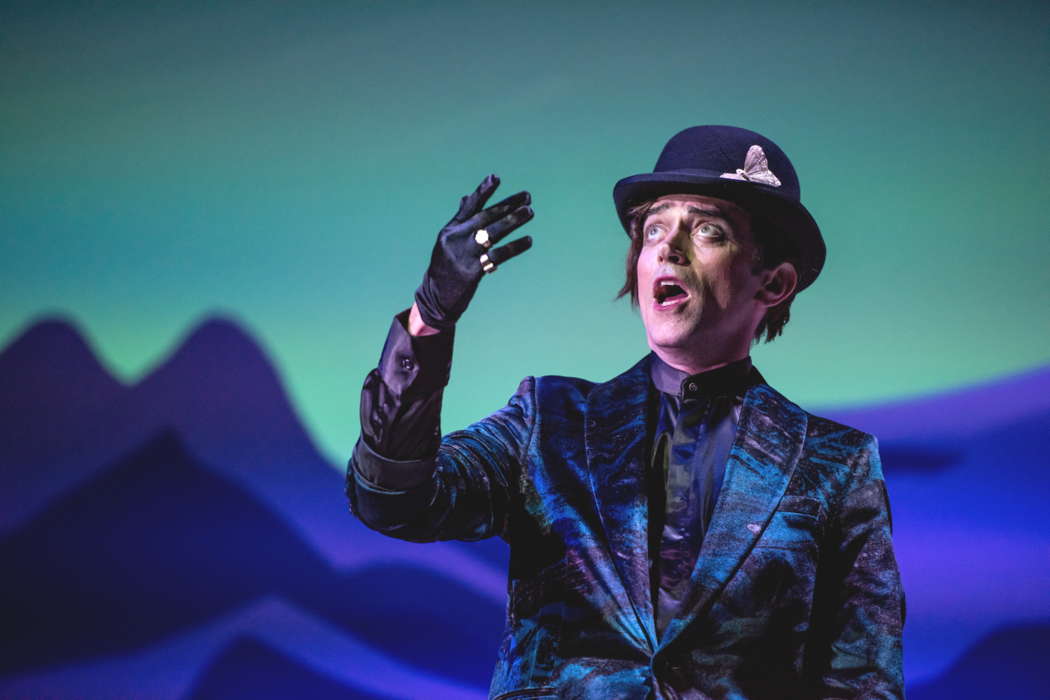
Trevor Eliot Bowes as the miracle worker Alidoro. Photo © 2023 Genevieve Girling
A bass surely in the top bracket: Robert Lloyd, Franz Crass (1928-2012), Kim Borg (1919-2000), Karel Berman (1919-95), Nicolai-Ghiaurov (1929-2004), Dmitry Hvorostovsky (regrettably, 1962-2017), Robert Lloyd, Gwynne Howell, Matti Salminen (all happily still going strong), we're talking, I suggest, he's in that sort of class. Some might argue the toss, but that's what I heard from Eliot Bowes, consistently.
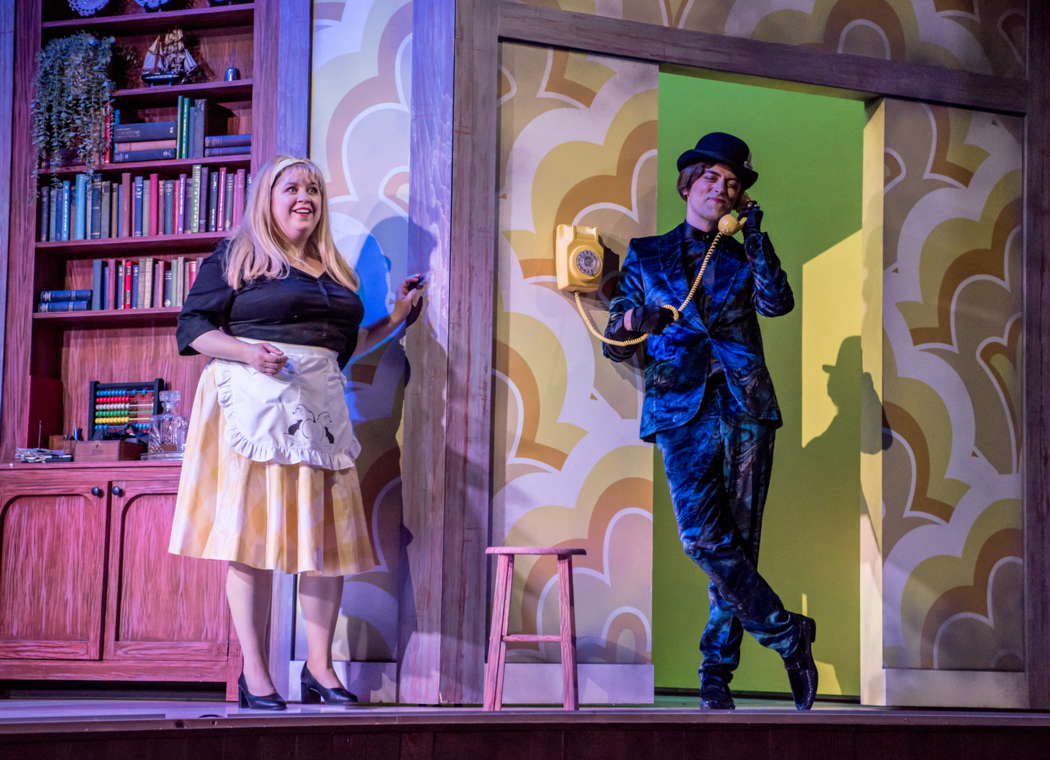
The fixer Alidoro seems to be telephoning - but whom?
Photo © 2023 Genevieve Girling
There are all sorts of ways of getting involved in, or keeping in touch with, this magnificent, forward-thinking company. Nevill Holt Corporate Membership is surely an obvious and attractive one - 'A huge part of what makes this Festival possible'. Likewise Sponsorship of the Festival, the Company or an event (eg an opera staging, and the encouragement of young performers in it). As one business participant who knows about these things commented:
Sponsorship of Nevill Holt Opera is an ideal opportunity to support an organisation that shares our values. And a brilliant opportunity outside London to entertain somewhere new, exciting and of the highest quality.
NH also meets ideally the aspirations of certain Trusts and Foundations.
There are three levels of Membership, with numerous benefits attending them (including one major one celebrating the Cunard family, who previously owned Nevill Holt). 'As a Member, your generosity and support for the company enables us to stage our opera festival each year. And to run extensive community and education programmes across the Midlands and beyond. Our mission of enriching lives and empowering young people through the power of music and the arts is only made possible by the support of our members.'

A special addition to this is the David Ross Education Trust, which reaches out to - at the last count - 14,500 schoolchildren and thirty-four primary and secondary schools and academies across the East Midlands, the wide region in which Nevill Holt is located. A gem in every sense, such educational initiative and dedication surely merits the highest level of commercial, professional and individual backing.
Copyright © 27 June 2023
Roderic Dunnett,
Coventry UK



